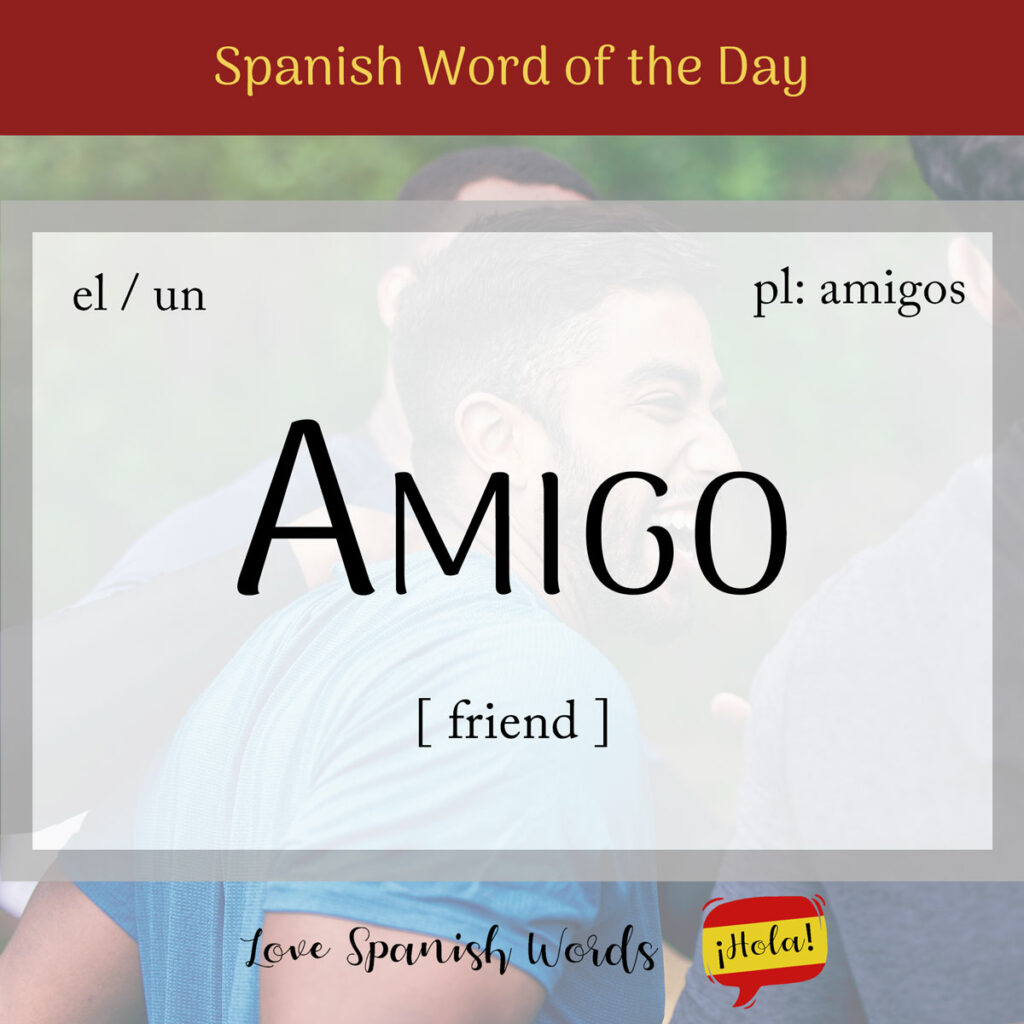The Spanish word for friend, amigo, originally comes from the Latin amīcus, meaning friend, which is derived from amare (to love).
Latin American pronunciation
European pronunciation

Amigo is a masculine noun and takes the following definite and indefinite articles:
- el amigo = the friend
- los amigos = the friends
- un amigo = a friend
- unos amigos = some friends
Este es mi amigo José.
This is my friend José.

The feminine version of the word amigo is amiga. The plural of amiga is amigas (female friends).
- la amiga
- las amigas
- una amiga
- unas amigas
When it comes to talking about a group of friends, the plural will become masculine if the group contains even just one male friend.
In our lives, we encounter various types of friends, each fulfilling different roles and contributing to our experiences. Here are a few examples of the different types of friends we may have throughout our lives:
- un amigo de siempre = a friend you have always known
- un amigo de confianza = a very close friend
- un amigo de la infancia = a childhood friend
- un amigo de trabajo = a work friend
- un amigo de alma = a soulmate
- un amigo íntimo = a very close or intimate friend
- un amigo en la prosperidad = a fair weather friend
- amigo invisible = imaginary friend
- grupo de amigos y conocidos = social network
- amigo de la familia = family friend
The word amigo is commonly used as an adjective alongside the preposition de…
- to make friends with… = hacerse amigo de…
- to be close with… = ser amigo de…
- to be fond or partial to… = ser amigo de…
- to dislike or not be keen… = no ser muy amigo de…
Felipe no es muy amigo de las fiestas.
Felipe is not very keen on parties.
In addition to simply referring to friends, we can use the word amigo to talk about a partner or lover. It can also serve as an informal way of addressing someone we don’t know well, similar to using mate or pal in English.

Did you know that…?
The antonym of amigo is enemigo (enemy).

Useful idiomatic expressions:
En el peligro se conoce el amigo
Literal translation: in danger you get to know your friend
English meaning: you find out who your friends are
Prestar dinero a un amigo es perder ambos
Literal translation: to lend money to a friend is to lose both
English meaning: lend your money and lose your friend
Amigo el ratón del queso
Literal translation: the mouse is a friend of cheese
English meaning: This phrase is often used to convey that someone has an affinity or liking for something, similar to how a mouse is drawn to cheese. It’s typically used in a playful or metaphorical context to describe someone’s preferences or habits.

